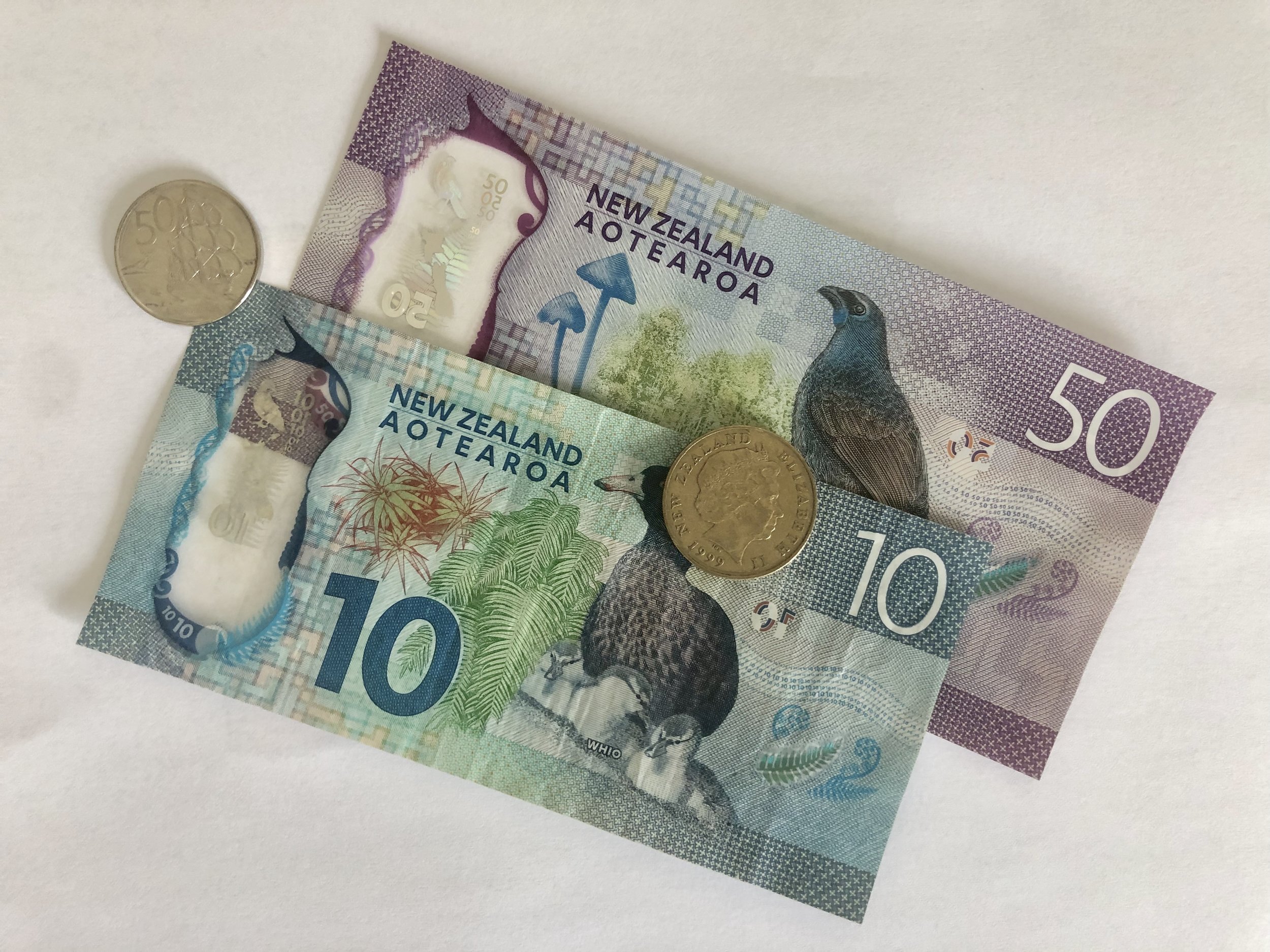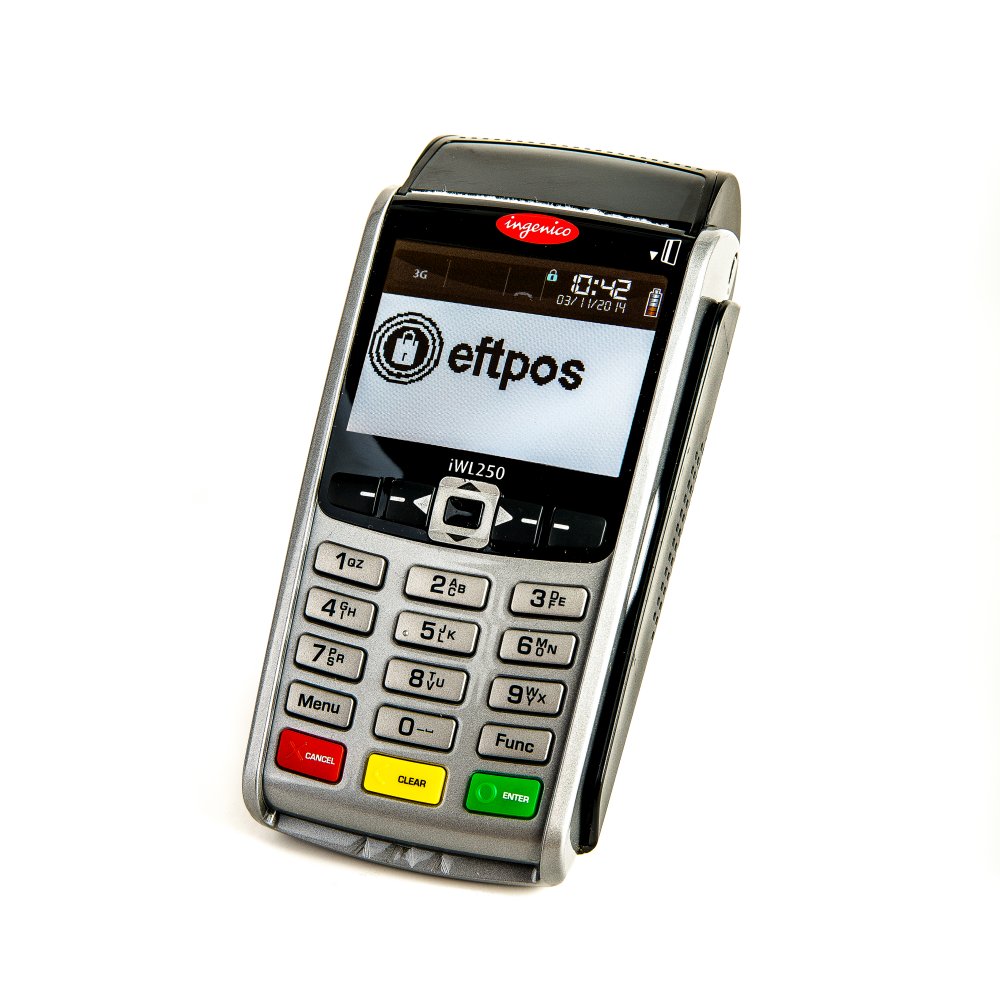Cash vs. Plastic
In New Zealand, it is easy - Plastic. Everywhere and everyone accepts credit cards, but here, it is called EFTPOS - electronic funds transfer at point of sale. It is a kludgey name, but if you see EFTPOS, it means cards are accepted. To give you an idea of exactly how prevalent these machines are, I ordered food for delivery on my first night in Auckland. The delivery driver had an EFTPOS machine in hand for me to use in exchange for the food. And I’m not talking like a little Square card reader attached to his phone. It was the full device about the size of an old brick cellphone. For my entire time in New Zealand, I’ve been to an ATM twice, and both times it was to get cash to pay a babysitter. There are some important things to know about how money is exchanged here so you’re prepared and in the know.
Cash denominations: Paper money is available in $5, $10, $20, $50, and $100 bills. There are 10¢, 20¢, 50¢, $1 and $2 coins. The $1 and $2 coins are commonly referred to as “gold coins.” At certain events and charity things, the information about the event will also include a request for “a gold coin donation.” This is a way to collect a very small sum, often from children, to impress upon them the value of the upcoming activity. Outside of this kind of ask, I’ve never seen anything that requests cash only.
Paywave: Kiwis love the availability to tap a credit card on the EFTPOS machine to pay. Vendors are apologetic if they don’t have Paywave on their machine. It is quite a difference from the US where chip readers are all the rage, and I had to sit at the machine with my card stuck in it for quite some time while it was processed. Here, it is a simple tap and go.
PINs: Because there is Paywave everywhere and security concerns, every credit card has a PIN that you’ll need to enter to complete most sales. Some larger chains don’t require a PIN if your purchase is under a certain amount, but when you get your credit card and give it a PIN, don’t forget it. You will use it all the time.
Money Transfers: Kiwi common sense built into the banking system means transferring money from one person to another, or from a person to business, is really, really simple. Just like in the US, every bank account is accessible through an online portal and app. There is always an option to make a bank transfer. Whomever is receiving the money will provide their account information, and the sender simply enters the recipient’s info and amount into a simple online form and voilà, the money moves from one to another. It’s what Venmo and PayPal are doing in the US, without requiring that both people be on the platform, arbitrarily low limits, or fees. It is straightforward, easy to use, and it makes me wonder what bizarre banking rules prevent banks from implementing this simple-to-use system in the US.
Credit Card Fees: In the US, credit card fees are built into the cost of goods 95% of the time. Only in remote instances, like paying for something like car registration online, would I see an added credit card processing fee in the States. In New Zealand, it is a lot more common. For instance, parking meters will regularly charge and additional 50¢ or 60¢ to pay with a card. Often airlines will market sales with the fine print of “credit charges apply.” This isn’t a hard and fast rule, though. It is just something I pay attention to now, and I inwardly grumble when I see it.
American Express: American Express is not everywhere you want to be. Many establishments in New Zealand simply don’t take it. Visa and Mastercard are everywhere, though, so come prepared





